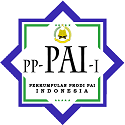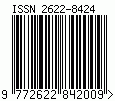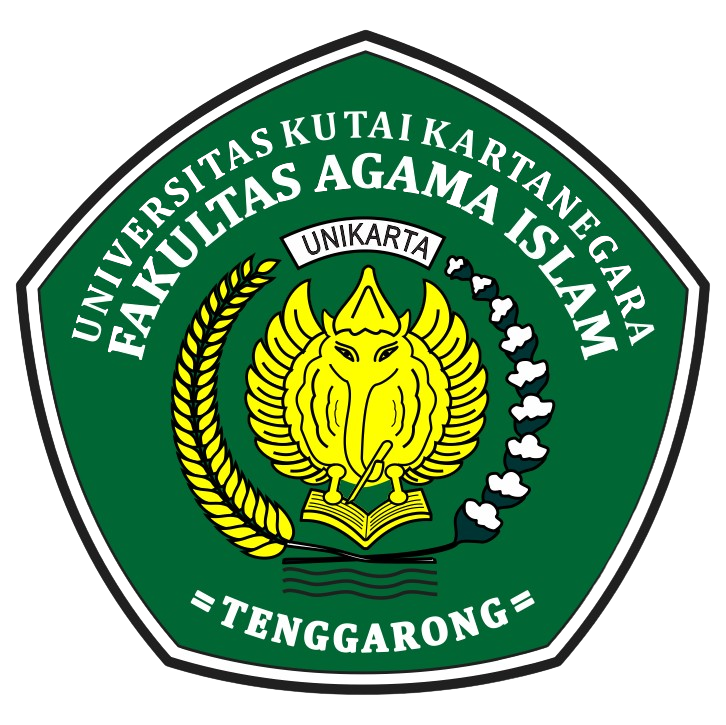POTENSI AKAL MANUSIA DAN PEROLEHAN ILMU PENGETAHUAN DALAM PEMIKIRAN EPISTEMOLOGIS IBNU KHALDUN
DOI:
https://doi.org/10.53640/azkiya.v7i1.1625Keywords:
Epistemologis, Pengetahuan Abadi, Ilmu yang diperoleh, Ilmu Naqliyah, Ilmu AqliyahAbstract
Islamic epistemology places reason as a source of knowledge, alongside revelation. However, until now Muslims still have different views regarding the relationship between reason and revelation, especially regarding the function of reason. So it is important for the Islamic ummah to formulate a holistic epistemological conception and combine the two. Ibn Khaldun is a Muslim philosopher who has an epistemological conception, which explains the potential of reason and its position alongside revelation. This article aims to understand Ibn Khaldun's conception of reason, its potential in the acquisition of knowledge, and its existence in Islamic epistelogy. The study uses qualitative descriptive analysis through literary methods, by tracing Ibn Khaldun's thoughts from the Muqaddimah as a primary source, and other relevant books. The study results showed that the mind plays an important role in acquiring knowledge. Intellect is the potential to understand everything, acquire and develop knowledge. Science is the human ability to make analysis and synthesis as a result of the thinking process (af`idah). The thinking process takes place based on levels, which are divided into three: `aql tamyizi, `aql tajribi, and `aql nadhari. Based on that, science is divided into two categories: naqliyyah and aqliyyah science. Ibn Khaldun's conception of science is integral and relevant to the current situation of Muslims, especially in the context of Islamic education and the challenges of scientific development.
References
Achmadi. Islam Sebagai Paradigma Ilmu. Cet.II. Yogyakarta: Yogyakarta Aditya Media, 1992.
Al-Attas, Syed Muhammad Naquib, Prolegomena To The Metaphysics of Islam: An Exposition of The Fundamental Elements of The Worldview of Islam. Kuala Lumpur: ISTAC, 2001.
Iqbal, Abu Muhammad, Pemikiran Pendidikan Islam: Gagasan-Gagasan Besar Para Ilmuwan Muslim. Yogyakarta: Pustaka Pelajar, 2020.
Khaldun, Ibnu, Muqoddimah Ibnu Khaldun. Terj. Ahmadie Thoha. Cet.3. Jakarta: Pustaka Firdaus, 2001.
Maarif, Ahmad Syafii, Ibn Khaldun dan Kontribusinya di Bidang Sejarah. Cet.2. Bandung: Mizan, 1994.
------. ``Ibn Khaldun Dalam Pandangan Penulis Barat Dan Timur`` dalam Peta Bumi Intelektualisme Islam di Indonesia. Jakarta: Gema Insani Press, 1996.
Madjid, Nurcholish (ed.), Khazanah Intelektual Islam. Cet.2. Jakarta: Bulan Bintang, 1985.
Nasution, Harun, Pembaharuan Dalam Islam: Sejarah Pemikiran dan Gerakan. Jakarta: Bulan Bintang, 1991.
Ridha, Muhammad Jawwad, Tiga Aliran Utama Teori Pendidikan Islam: Perspektif Sosiologis-Filosofis. Yogyakarta: Tiara Qacana Yogya, 2002.
Siswadi, Ibnu Khaldun dan Progressivisme. Tesis magister tidak dipublikasikan, Program Pasca Sarjana IAIN Sunan Kalijaga, Yogyakarta, 2000.
Suharto, Toto, Epistelologi Sejarah Kritis Ibnu Khaldun. Yogyakarta: Fajar Pustaka Baru, 2003.
--------. Filsafat Pendidikan Islam: Menguatkan Epistemologi Islam Dalam Pendidikan. Yogyakarta: Ar-Ruzz Media, 2014.
Wafi, Ali Abdul Wahid Ibnu Khaldun: Riwayat dan Karyanya. Terj. Ahmadie Thoha, Jakarta: Grafiti Press, 1985.
Walidin AK, Warul, Konsep Pedagogik Ibnu Khaldun, Disertasi doktoral tidak dipublikasikan. Program Pasca Sarjana IAIN Sunan Kalijaga: Yogyakarta, 1997.
Al-Khudhairi, Zainab, Filsafat Sejarah Ibnu Khaldun. Terj. Ahmad Rofi’ Utsmani. Bandung: Pustaka Bandung, 1995.
Downloads
Published
Issue
Section
License
Copyright (c) 2024 Amin Nasrullah

This work is licensed under a Creative Commons Attribution 4.0 International License.












